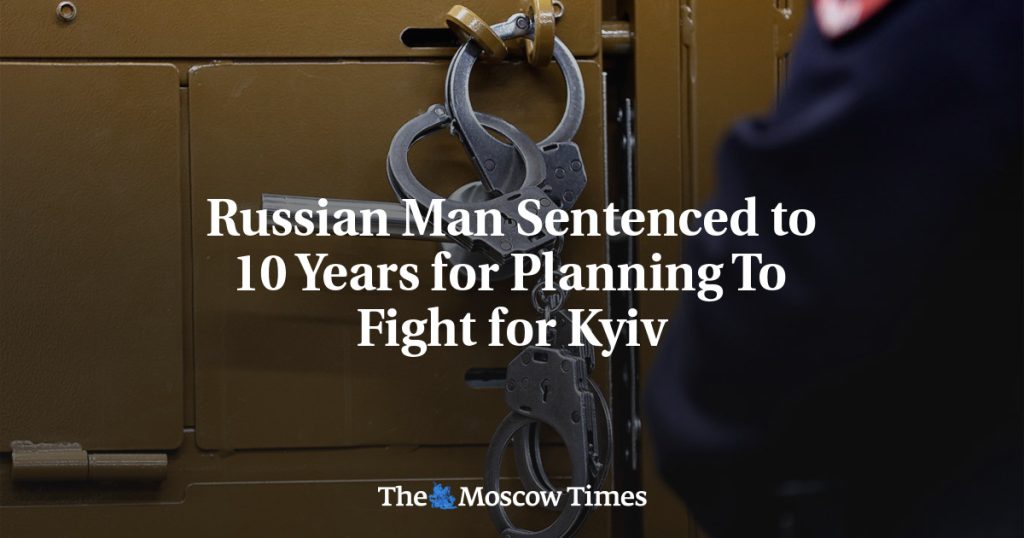Russia recently sentenced a Siberian man to a long jail term for state treason and terrorism after he was accused of planning to join Russian units fighting for Ukraine. This arrest is part of a series of cases involving Russian citizens allegedly seeking to fight for pro-Ukrainian armed groups. The 26-year-old suspect was detained in the Kemerovo region while he was on his way to Ukraine, and the FSB stated that he intended to participate in combat on the side of the Ukrainian armed forces due to his disagreement with Russia’s leadership on the Ukraine conflict. He had posted symbols of the Freedom of Russia Legion, considered a terrorist organization by Moscow, online.
In a separate incident in the southern Ukrainian Zaporizhzhia region under Russian occupation, authorities sentenced a man to 11 years in prison for spying for Ukraine. The individual was accused of gathering and passing information on Russian troop movements and infrastructure in the region. These cases highlight Russia’s strict prosecution of individuals accused of collaborating with Ukraine, with the government viewing such actions as acts of treason and terrorism. The ongoing conflict in Ukraine has led to heightened tensions and divisions among Russians, with some expressing support for Ukrainian forces and opposing Russia’s involvement in the conflict.
The FSB’s monitoring of individuals suspected of planning to join pro-Ukrainian armed groups reflects Russia’s efforts to prevent citizens from engaging in activities deemed harmful to national security. By arresting and prosecuting individuals accused of collaborating with Ukraine, Russia aims to deter others from following a similar path and to demonstrate the consequences of supporting actions opposed to the government’s stance on the conflict. The government’s crackdown on dissenting voices and perceived threats to its authority underscores the strict control maintained over domestic affairs and the enforcement of loyalty to Russia’s leadership.
The imprisonment of the Siberian man highlights the complex dynamics at play within Russian society, where diverging views on foreign policy and conflicts such as the one in Ukraine can lead to legal consequences and social divisions. The individual’s decision to support Ukrainian forces and his subsequent arrest reveal the challenges faced by those who express dissenting opinions or support for causes deemed unfavorable by the Russian government. This case exemplifies the consequences of opposing the official narrative on international conflicts and the risks involved in actively engaging with movements perceived as threatening to Russia’s interests.
Overall, the cases of individuals arrested for alleged treason, terrorism, and spying in relation to the conflict in Ukraine underscore Russia’s strict enforcement of loyalty to the state and its intolerance of actions perceived as undermining national security. The government’s crackdown on dissent and its prosecution of individuals supporting pro-Ukrainian groups reflect the broader tensions within Russian society over the conflict and differing views on foreign policy. By punishing those who deviate from the official stance on the conflict, Russia seeks to maintain control over public discourse and prevent internal divisions that could weaken its authority. The cases serve as a reminder of the consequences of opposing the government’s policies and the risks associated with expressing dissent in a politically charged environment.















